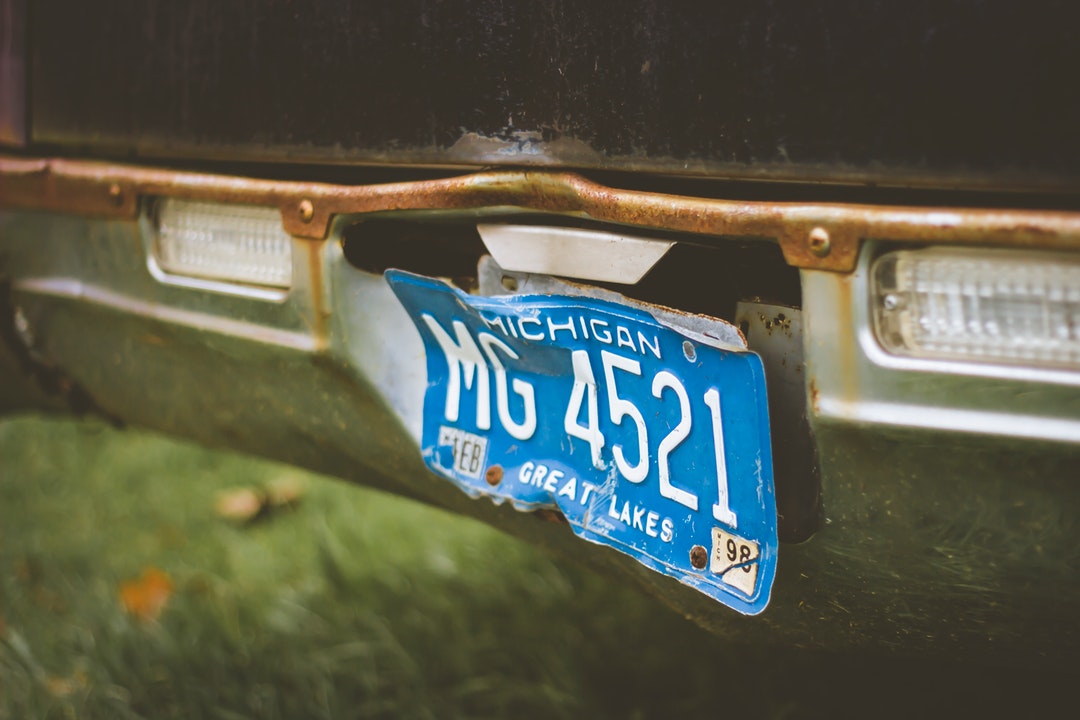Does your home garage look more like a junkyard? Do you love the thrill of finding an antique license plate at a thrift store or a speciality one with your favorite sports team on it?
If so, you’re an avid license plate collector. Welcome to the club.
While it can be an enjoyable pastime or hobby, license plate collecting can also be a lucrative side gig if you know how to do it correctly.
The good news? You don’t have to be quite as enthusiastic as this guy and his 7,000 plates to make the most out of it.
Today, we’re sharing seven tips to help you navigate this new journey. Whether you’ve been collecting for years or are just getting your feet wet, there’s something for everyone here.
Ready to learn more? Let’s dive in!
1. Understand How Prevalent It Is
Think you’re going to strike it rich because you found what resembles a rare license plate in a stack of 100? While that might be the case for some, chances are it’s another piece of aluminium.
One of the reasons for this is the fact that America has long been a leader in car production, and this has been true since the dawn of the automobile. Though we’ve slipped to the number four position in recent years behind China, the EU and Japan, we’re still up there.
This means that even license plates from 100 years ago might not be as rare as you think since so many were made. They’re likely not as valuable, either. Even 80 years ago, each state would issue a new license plate design on an annual basis.
This was an exorbitant amount of money to spend on metal and also reduces the value of plates created during that time. The takeaway? A 1920s plate and a 1990s one could be worth roughly the same, even if one has a better patina!
2. You Can Quickly Amass “Base Plates”
Especially if you’re only seeking to grow a license plate collection for personal display rather than commercial profit, it’s helpful to know you can do so easily.
How? Start by searching for base plates. These are standard, year-over-year plates that each state produces. Beginning in the early 1900s, it’s easy to track these issues. Retro ones look especially appropriate on classic cars!
Keep in mind that before this timeframe, some of today’s states weren’t a part of the union. Instead, they were known as pre-state territories and their plates are likewise labeled as such.
You can find base plates for around $50 at estate sales, online auctions and swap meets. More difficult to find are speciality plates created throughout the decades, such as those designed for firefighters, universities, organizations and more.
U.K.-based number plates also fall into this category. You can utilize online resources to find more information on what yours is worth to understand its resale value.
3. You’ll Have to Hunt for Foreign Plates
Dream of adding a foreign plate to your collection? Depending on where your sites are set, you could have a difficult time doing so. Governments often place strict controls over the sale of both current and historical plates.
While this means a little more legwork for you, it could also equal a higher payout. Even poor-condition foreign license plates can earn a few hundred dollars depending on where they’re from.
In some instances, the foreign country might not exist anymore. This is the case with Rhodesia and Yugoslavia, among others. Or, the plates may be rare due to the specific time period. For instance, pre-WWII plates from European countries are a challenge to secure because most of them were demolished in the war.
If you have contacts within these countries, that is often your best bet to finding a license plate there, as even eBay’s selection is restricted in this category.
4. You Can Engage a Local Community
Want to connect with like-minded peers who also love old license plates? While you can find myriad online forums and chat groups on the topic, you may be able to meet in-person with folks in your own backyard!
Look for regional swap meets via a resource such as the Automobile License Plate Collectors Association (ALPCA). You can find a list of their local meets here. Note that you’ll need to join the ALPCA to be granted access to these gatherings, but if you intend to pursue this hobby, that’s a natural next step!
5. Make Friends with the Postal Clerk
If you’re only interested in collecting and trading domestic license plates, you can find them online and have them shipped to you with relative ease. Yet, this process becomes a little harried when you’re accepting a shipment from a foreign country.
From customs paperwork to unexpectedly high shipping fees, know what to expect before you click “buy now” at an online auction. The plates may arrive cheaply packaged, especially if they’re coming from a new seller.
This also applies to bringing any foreign plates home with you from a vacation or business trip. Trying to explain to airport officials why you’re traveling with the plates can be a nightmare, so arrange to ship them home before you leave if possible.
Give License Plate Collecting a Try Today
Are you an automobile enthusiast ready to take your love of cars, trucks and all things that go “vroom” to the next level?
If so, license plate collecting could be the hobby you never knew you always wanted to pursue.
As you learn more about this venture, we’d love to be your go-to spot for everything motor-related. From DIY auto repair tricks to repair manuals and classic car info, if you want to learn about it, we’re covering it.
Find a great retro plate you can’t wait to attach to the front of your hot-rod? Check out our guide on how to install license plates to get started!

